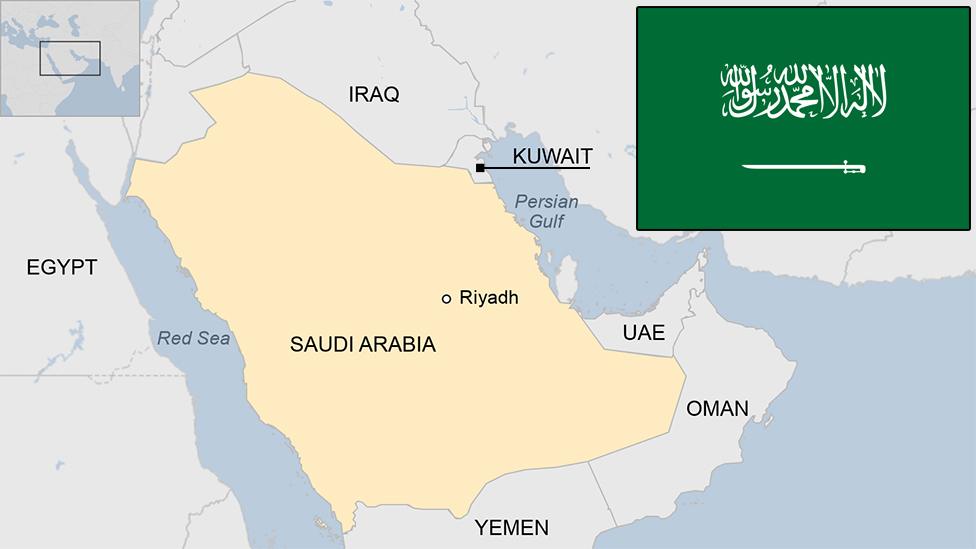Saudi Arabia: Why succession could become a princely tussle
- Published
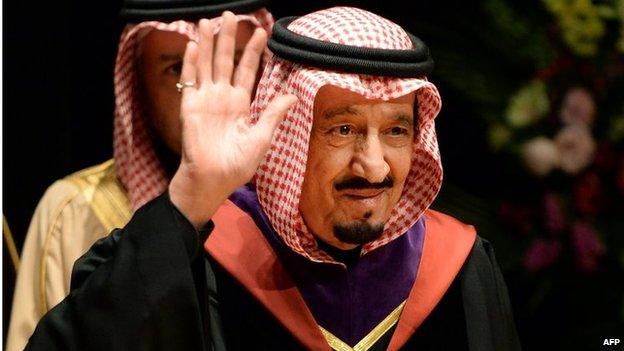
Salman was swiftly confirmed as successor to King Abdullah
With the Middle East in an unprecedented state of turmoil, the need for smooth and orderly transfers of power in Saudi Arabia has become more crucial than ever - but who will inherit the kingdom in the coming years is a thorny issue yet to be resolved.
Saudi Arabia is a large and influential country. Guardian of the two most holy sites in Islam, it regards itself as leader of the Sunni community worldwide.
The kingdom is a key player in Sunni attempts to block Shia Iranian influence in the Middle East - and is the world's leading oil producer.
On the face of it, the immediate succession process is arranged and agreed upon by the senior princes of the Al Saud royal family.
King Abdullah has been succeeded by former Crown Prince Salman, an event which in turn made Prince Muqrin the next heir to the throne.
All three men are sons of the founder of Saudi Arabia, King Abdulaziz (usually referred to as Ibn Saud), who died in 1953.
All six monarchs since then have been drawn from among his dozens of sons - but this pattern cannot continue indefinitely.
Looming challenge?
Crown Prince Muqrin, who is in his late 60s, is the youngest son of Ibn Saud.
Some of Prince Muqrin's older half-brothers, including Prince Ahmed - a full-brother of King Salman - are still alive.
Prince Ahmed and King Salman are survivors of the so-called Sudairi Seven - sons of one of Ibn Saud's favourite wives, Hassa al-Sudairi.
Until recently the Sudairi Seven constituted the strongest alliance among the male offspring of Ibn Saud.
Saudi succession: Key figures

Today, the assumption - but no more than that - is that Crown Prince Muqrin will be the last son of the founding monarch to sit on the throne. But Prince Ahmed might still assert his seniority by age.
The unprecedented step of appointing Prince Muqrin as a deputy crown prince was a move by King Abdullah to ensure smooth transition in the immediate future.
Two crown princes (Sultan and Nayef) have in recent times died before becoming kings. King Abdullah was old and frail, while, according to unconfirmed reports, King Salman (79) suffers health problems - something strongly denied by the Saudi authorities.
A meeting of the Allegiance Council, a body consisting of sons and grandsons of Ibn Saud to resolve succession issues, was held in March 2014 and endorsed Abdullah's elevation of Prince Muqrin - with the proviso that this appointment could not be overturned.
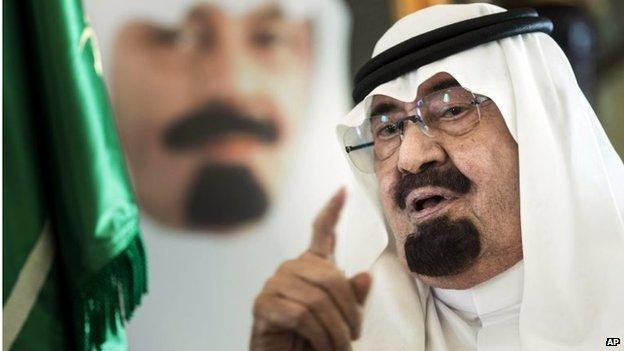
King Abdullah was the fifth son of Saudi Arabia's founding father to rule
But not all princes present at that Allegiance Council meeting voted in favour of Prince Muqrin's promotion. Differences of opinion are likely to manifest themselves still more now that he, as the youngest of Ibn Saud's sons, has moved up the succession ladder.
The focus of Saudi public speculation about future leadership progression centres today on which of the grandsons of Ibn Saud will be chosen to lead the way.
This is where the old adage about the Saudi succession becomes pertinent: those who speak a lot know nothing; those that know a lot say nothing.
All one can do at this stage is point to some of the strong candidates, several of whom already hold senior posts.
However, another caveat is the fact that those in power tend to appoint their sons to roles that will enhance their chances in turn of being promoted. When monarchs and crown princes change, sons can come into and out of favour.
Of the four sons of King Abdullah who are public figures, the favourite for swift promotion is Prince Mutaib (in his early 60s) who last year was appointed commander of the powerful National Guard and cabinet minister in a post created for him.
Behind closed doors
Perhaps the contender spoken of the most is Prince Mohammed bin Nayef, who is Minister of Interior - a post that his father (Crown Prince Nayef, one of the Sudairi Seven) held for many years.
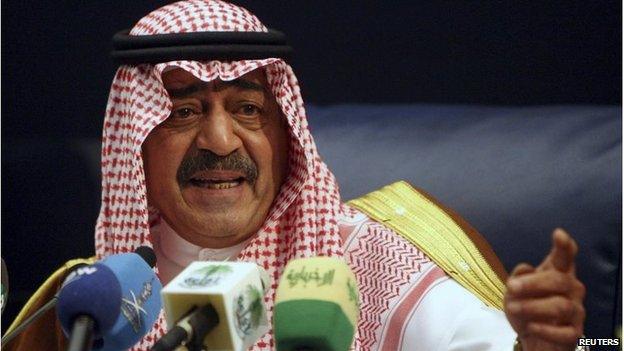
Abdullah named Prince Muqrin as Saudi Arabia's first deputy heir, skipping older brothers
Prince Mohammed, with a strong track record in government, enjoys popular respect and has impressed his hosts in visits to the United States and elsewhere.
Saudi Arabia faces many internal challenges, ranging from rising youth unemployment, the return of jihadists from Iraq and Syria, to growing criticism of Al Saud on domestic social media and simmering restiveness in the Shia-dominated Eastern Province.
As they deal with these issues, senior princes will want to avoid giving their enemies any indication that cracks are appearing in the Al Saud edifice. So, while animated debate can be expected about who will eventually carry the baton for the grandsons of the founding monarch the likelihood is that such matters will be resolved in the privacy of palaces rather than in public forums.
Gerald Butt, a former BBC Middle East correspondent, is a regional analyst for Oxford Analytica and Petroleum Policy Intelligence
- Published15 October 2014
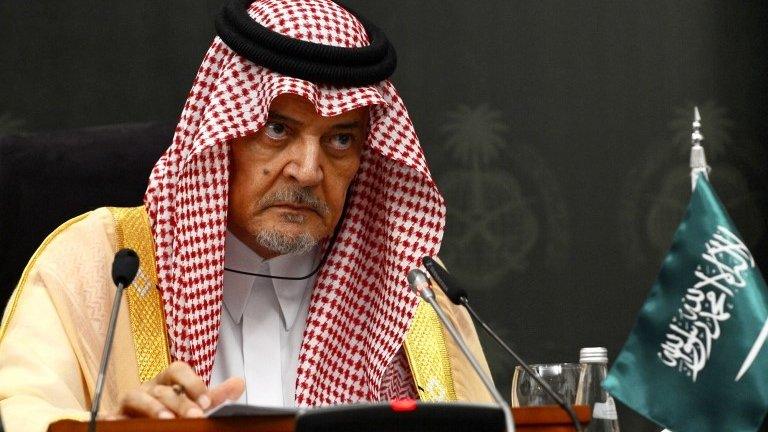
- Published26 June 2012
- Published29 August 2023
